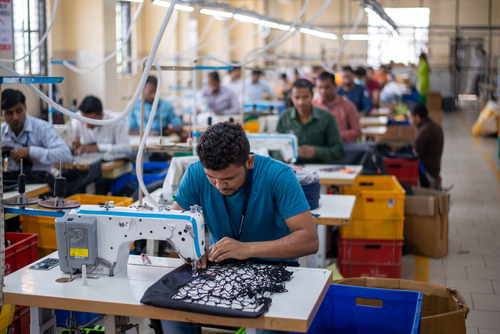
Framing it as a move to strengthen enforcement and support American textile jobs, the U.S. Department of Homeland Security (DHS) recently announced a strategy taking aim at illicit textiles and customs violations.
“We are dedicated to ensuring a fair and level playing field for American businesses,” Homeland Security Secretary Alejandro Mayorkas said. “The textile industry, like others industries, suffers when competitors use forced labor, violate customs laws, and engage in other illegal practices to undercut U.S. businesses and drive prices unfairly low. Through strengthened enforcement measures, enhanced inspection and testing, and increased information sharing, this Administration is protecting thousands of American workers and the U.S. textile industry.”
Spearheaded by U.S. Customs and Border Protection (CBP) and Homeland Security Investigations (HSI), this plan is meant to serve as a blueprint for future enforcement actions, with: intensified targeting of small package shipments, joint trade special operations, increased customs audits and foreign verifications, as well as an expansion of the Chinese-targeted Uyghur Forced Labor Prevention Act (UFLPA) Entity List.
In terms of small package crackdowns, the agencies will work to improve screening of packages claiming the exemption for textile and other violations, with expanded targeting, lab and isotopic testing, and focused enforcement operations. CBP and HSI will work together through special operations such as physical inspections and composition testing, backed by the issuance of civil penalties and conduct of criminal investigations to force cargo compliance.
Audits of foreign facilities deemed high risk will grow, alongside foreign verifications. This will be complemented on the American side by an education campaign to guarantee imports and suppliers understand compliance requirements and new enforcement actions.
As to the UFLPA element in particular, the administration will pursue a review of additional entities in the high-priority textile sector and add suppliers deemed to be harmful as needed.
As a whole, the plan’s implementation has already begun with, among other things, 15 Trade Special Operations (TSOs) focused on physical inspection of small shipments and cargo as well as post-release reviews and trade audits of more than $10.5 billion in textile imports.
DHS stated these actions would benefit an industry responsible for more than 500,000 jobs nationwide.




